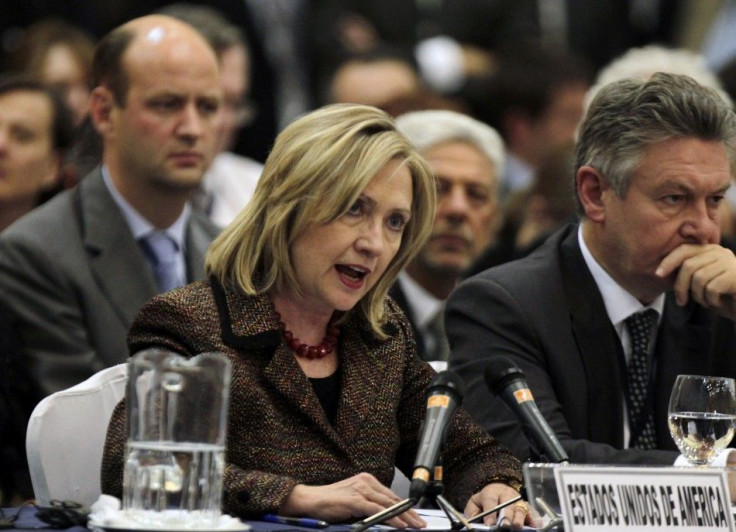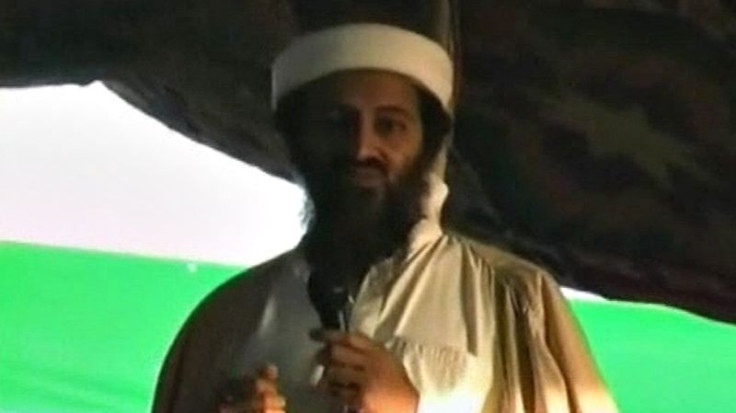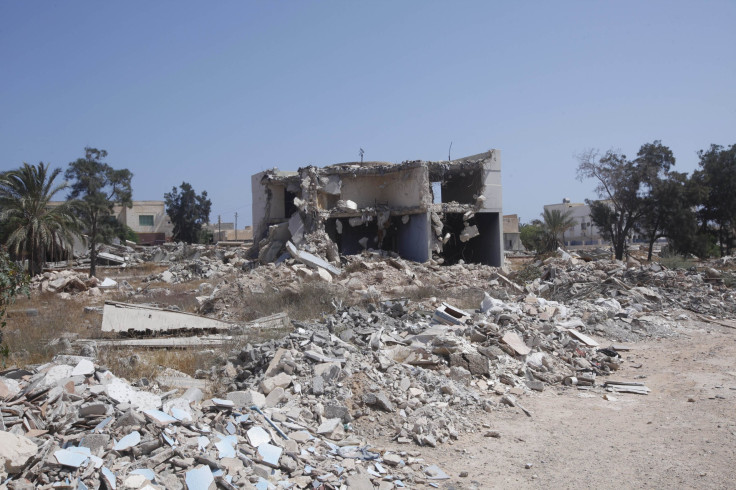What Hillary Clinton Accomplished? 5 Major Changes She Helped Make As Secretary of State

Democratic presidential candidate Hillary Clinton has stressed that the next president has to have the poise and self-discipline necessary to deal with crises and handle other world leaders — two things she has said Republican rival Donald Trump lacks and demonstrated during the candidates’ debates, repeatedly provoking negative reactions from Trump. Clinton was the 67th U.S. secretary of state and she has touted that experience throughout the presidential campaign as the biggest plus on her resume.
Clinton logged millions of miles as secretary, visiting 112 countries during her four years in office to negotiate agreements, put out diplomatic fires and repair relationships from former President George W. Bush's time in office. She is described as a pragmatist and an activist who is satisfied with small steps to achieve her goals.
"Her efforts are not always flashy and they’re not always appreciated here at home, but she made me a better president, and she didn’t ask for credit," President Barack Obama said in a campaign appearance Tuesday in Columbus, Ohio.
Some analysts hail her as the best-ever secretary of state while others note her lack of signature achievement. Here are her top five accomplishments:

Osama bin Laden: Clinton has said she was in favor of the raid that killed the al Qaeda leader in 2011 and was among those in the Situation Room at the White House, watching video as the raid went down. Clinton pushed for the raid to go ahead as other members of the Cabinet argued against it. “[Clinton] was quite clear on when it came to taking a position from what I recall from the Situation Room conversations,” a former senior official told the Hill. The successful raid on bin Laden’s Abbottabad, Pakistan, compound was a serious blow to the terror group, which has been eclipsed by the Islamic State group.
Israel and the Palestinians: Clinton hails the ceasefire she negotiated in 24 hours between Israel and Hamas in 2012 on her website, and though the agreement may have stemmed the rocketfire that rained down on Israel from Gaza and the violence of Israeli retaliatory attacks, it far from resolved the situation. She was able to get then-Egyptian President Mohamed Morsi to signal he was ready to launch a ground invasion of Gaza, convincing Hamas to cooperate. The ceasefire fell apart less than two years later when Palestinians kidnapped and killed three Israeli teenagers and then Israelis kidnapped and killed a Palestinian teen.
Iran: Clinton’s website also hails the Iran agreement designed to prevent Tehran from rapidly developing nuclear weapons. Clinton helped persuade Russia, China and nine other U.N. Security Council countries to adopt tough sanctions that had a serious impact on Iran’s economy. The sanctions led to the current agreement, finalized by Clinton’s successor, John Kerry, that lifted sanctions in exchange for scaling back Iran’s nuclear program. Critics say the deal has given Iran more money to use to fund terrorist activity in the region.

Libya: Clinton helped forge the coalition that ousted Moammar Gadhafi in 2011. Clinton reportedly refereed spats among NATO partners who conducted bombing runs that helped anti-Gadhafi forces seize control. She also secured support from Arab countries. Since then, however, Libya has descended into chaos, with competing coalitions claiming to be in control of the government and ISIS gaining a foothold.
Strategic Arms Reduction Treaty: Clinton helped negotiate the START missile reduction agreement with Russia and helped push it through the Senate. The treaty, which went into effect Feb. 5, 2011, provided for the exchange of databases on the numbers, locations and technical characteristics of weapons systems and facilities. It limited strategic warheads to 1,550, deployed and nondeployed strategic launchers and heavy bombers to 800, and deployed strategic launchers and heavy bombers to 700. Russian President Vladimir Putin, in recent weeks, however, has threatened to abrogate the agreement.
© Copyright IBTimes 2024. All rights reserved.





















